Keyword optimization is a critical component of Search Engine Optimization (SEO), focusing on strategic integration of relevant keywords into content to boost search rankings. This involves understanding user intent, identifying long-tail keywords through research, and natural incorporation into text. SEO tips for ranking higher include keyword research using tools like Google Keyword Planner, regular analysis of search trends and competitor strategies, targeting the right keywords for high-quality traffic, and creating valuable content. Effective keyword research enables optimized on-page content, including title tags, meta descriptions, header tags, and image alt tags, while also driving domain authority through quality backlinks. Continuous monitoring of industry trends, competitor tactics, and user behavior is essential for refining SEO strategies and maintaining high rankings in search engine results pages (SERPs).
Keyword optimization is a cornerstone of successful SEO strategies. To rank higher, understand that it’s not just about choosing the right words; it’s an art and science of aligning your content with user search intent. This article offers valuable SEO tips for ranking higher by guiding you through every step from identifying niche-specific keywords to building quality backlinks—all essential for enhancing search engine visibility and driving organic traffic.
Understanding Keyword Optimization: The Foundation of SEO Success
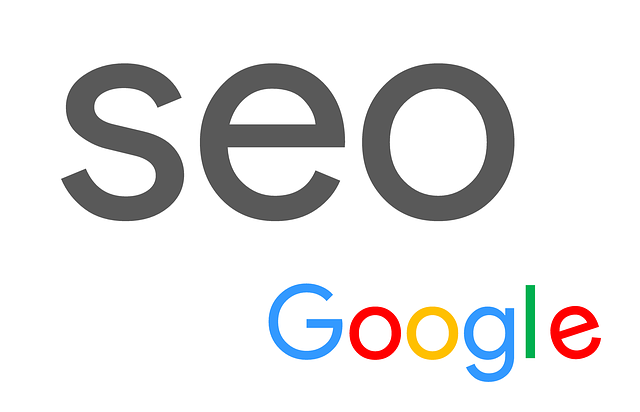
Keyword optimization is a fundamental aspect of Search Engine Optimization (SEO) that involves strategically placing relevant keywords in your content to improve search engine rankings. It’s a process that goes beyond simply choosing popular search terms; it entails understanding user intent, identifying long-tail keywords, and incorporating these words naturally into your text. SEO tips for ranking higher emphasize the importance of keyword research, which helps uncover the phrases users actually type into search engines when looking for information related to your niche.
By optimizing your content with these SEO tips for ranking higher, you make it more likely that your website will appear in the top search results, increasing visibility and attracting a larger audience. This strategy ensures your content resonates with both search engines and users, fostering better engagement and ultimately contributing to greater online success.
Identifying Target Keywords for Your Niche
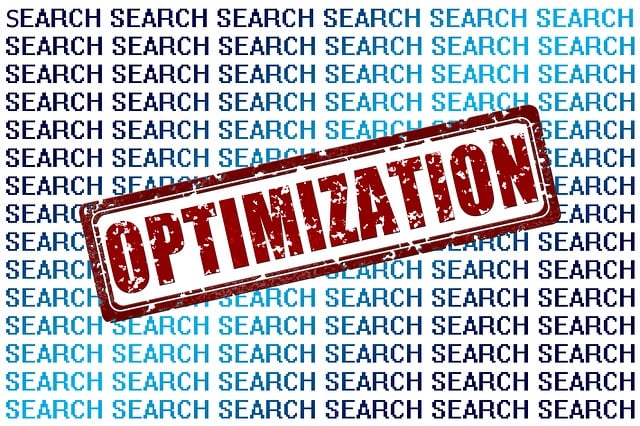
When optimizing your website for search engines, understanding your niche and target audience is crucial. SEO tips for ranking higher start with identifying relevant keywords that potential customers are using to find products or services similar to yours. Tools like Google Keyword Planner, SEMrush, or Ahrefs can help uncover popular search terms specific to your industry.
Focus on long-tail keywords—phrases that are more specific and typically have less competition. These can drive high-quality traffic and significantly improve your website’s visibility. Regularly analyze search trends and competitor strategies to stay ahead of the curve. By targeting the right keywords, you can attract your ideal audience and boost your online rankings.
Conducting Comprehensive Keyword Research

Comprehensive keyword research is a cornerstone of any successful SEO strategy, serving as the foundation for your content efforts. It involves delving into tools and trends to uncover relevant keywords that potential audiences are actively searching for. By analyzing search volume, competition levels, and user intent, you can identify high-value keywords that align with your business goals. These insights enable you to create targeted content optimized for both users and search engines, enhancing your website’s relevance and authority.
Effective keyword research translates into actionable SEO tips for ranking higher. This includes understanding the nuances of long-tail keywords, which often have less competition but high conversion rates. Incorporating these keywords naturally within your content, meta tags, and headings not only improves visibility but also provides a better user experience. Additionally, staying abreast of industry trends and continuously refining your keyword strategy ensures that your website remains relevant in a dynamic online landscape.
Incorporating Keywords into On-Page Content Strategically

When implementing SEO tips for ranking higher, incorporating keywords into on-page content strategically is a best practice that shouldn’t be overlooked. It involves seamlessly integrating relevant keywords into your web page’s content in a way that enhances readability and user experience. This means using your target keywords naturally within headings, subheadings, meta descriptions, image alt tags, and throughout the main body copy. However, it’s crucial not to overdo it; excessive keyword stuffing can trigger search engine penalties and detract from the overall quality of your content.
A balanced approach is key. Conduct thorough keyword research to identify terms with high search volume and low competition. Then, include these keywords in a thoughtful manner, ensuring they align with the page’s topic and resonate with your target audience. Remember, search engines prioritize delivering valuable, relevant content to users, so always write for your readers first, and let your chosen keywords serve as a guide to optimize your on-page content effectively.
Optimizing Title Tags and Meta Descriptions Effectively

When it comes to SEO tips for ranking higher, optimizing your title tags and meta descriptions is a powerful strategy. These elements are among the first things search engines scrutinize when indexing your website. A well-crafted title tag should be concise, incorporating relevant keywords while clearly conveying the page’s content. For instance, if your webpage focuses on “best organic coffee beans,” ensure this phrase appears in the title, attracting coffee enthusiasts seeking high-quality products.
Meta descriptions, though not directly influential in rankings, play a significant role in click-through rates. Write compelling meta descriptions that entice users to click while subtly integrating keywords. For example, “Discover the finest organic coffee beans, handpicked from around the globe, to elevate your morning brew.” Such descriptions not only optimize for SEO but also boost user engagement, encouraging visitors to explore your content further.
Leveraging Header Tags for Better Search Engine Visibility
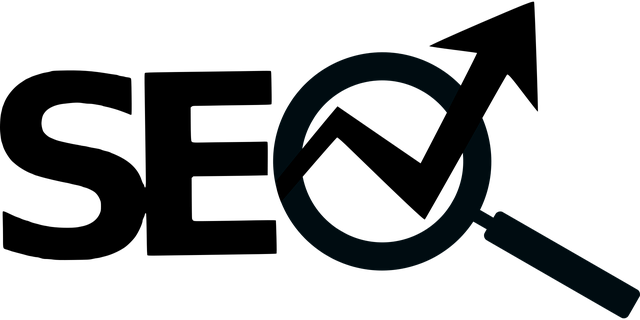
Header tags, such as H1, H2, and H3, play a pivotal role in enhancing your content’s search engine visibility. These tags signal to search engines which parts of your text are most important, helping them understand the context and structure of your content better. When optimizing for SEO tips for ranking higher, using header tags effectively can make a significant difference.
For instance, placing your main keyword or key phrase in an H1 tag not only highlights its importance but also tells search engines what your page is primarily about. Subsequent headers (H2, H3) can then break down the content into digestible sections, making it easier for both users and search algorithms to navigate. This strategic use of header tags contributes to a positive user experience, encouraging visitors to engage longer with your content, thereby signaling to search engines that your page is valuable and relevant.
Building Quality Backlinks to Boost Rankings
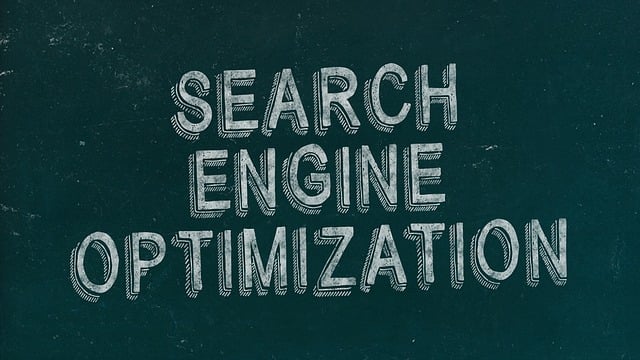
Building quality backlinks is a cornerstone of any effective SEO strategy. These links, earned from reputable and relevant websites, signal to search engines that your content is valuable and trustworthy. When other high-authority sites link to yours, it boosts your domain authority, which directly impacts your rankings. Focus on creating engaging, shareable content that naturally attracts backlinks. Guest blogging on popular industry sites, contributing to online forums, and collaborating with influencers are proven SEO tips for ranking higher.
Additionally, using anchor text strategically can enhance the effectiveness of these backlinks. Anchor text refers to the clickable words used in a link. Varying your anchor text ensures that search engines don’t view your backlinks as spammy or manipulative. Incorporate keywords naturally within your anchor text while also including branded terms and generic phrases like “read more” or “check out this article.” This balanced approach not only improves rankings but also drives targeted traffic to your site.
Regularly Analyzing and Updating Your SEO Strategy
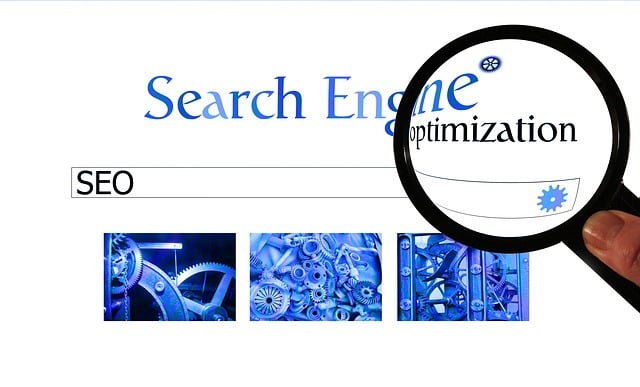
Staying ahead in the digital landscape demands a dynamic SEO strategy. Regularly analyzing and updating your approach is key to SEO tips for ranking higher. Keep an eye on industry trends, competitor strategies, and user behavior to refine your content and keyword targeting. This ongoing optimization ensures your website remains relevant and competitive.
Utilize analytics tools to track performance metrics such as click-through rates, bounce rates, and conversion rates. Identify areas of improvement and adjust your SEO strategy accordingly. For instance, if a particular keyword isn’t performing well, consider alternative phrases or refine your content to better address user queries.
Measuring Performance: Tracking KPIs for Keyword Optimization

Measuring performance is an integral part of keyword optimization, as it helps to understand what strategies are working and where there’s room for improvement. Key Performance Indicators (KPIs) such as click-through rate (CTR), conversion rates, and average position provide valuable insights into the effectiveness of your SEO efforts. By tracking these metrics, you can identify high-performing keywords that drive organic traffic and conversions, and also pinpoint areas where SEO tips for ranking higher are needed.
For instance, a low CTR might indicate that a keyword needs better targeting or that the content doesn’t resonate well with users. On the other hand, consistently high conversion rates from specific keywords suggest that your content is optimized effectively and aligns with user search intent. Utilizing these data-driven insights, you can refine your strategy, optimize content, and ultimately enhance your website’s rankings in search engine results pages (SERPs).
